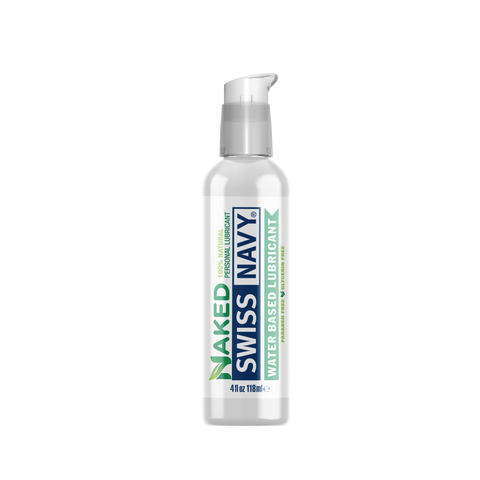Yes, You Should Update Your Lube as You Age

Intimate lubricants can add comfort and fun to relationships, and for many, choosing a lube is a personal choice. Often, people discover their favorite lubricant—and stick with it for years. But, have you ever stopped and considered if your lube is keeping up with the changes that take place in your body?
As we age our tissues need more moisture. And for women, the pH levels in intimate areas change over time.
I’m here to tell you—Yes, you should update your lube as you age!
3 Reasons to Update Your Lube as You get Older (and Wiser)
- Extra hydration is needed.
- You may have developed sensitivities to certain ingredients.
- Your intimate pH level is not what it was in your youth.
All valid reasons to update your personal lubricant, but let’s take a closer look at each one.
Hydration is Important
According to the National Institutes of Health, hydration is linked to healthy aging. They followed over 11,000 adults over a 30-year period and found that older adults who stay well-hydrated are healthier, develop fewer chronic conditions and diseases, and live longer.
They even ventured to state that proper hydration may slow down the aging process.
And while water is necessary for nearly every bodily function, intimate lubrication requires more than mere water. As our bodies age our tissues become thinner. For women, the natural hormonal reduction in estrogen makes us drier.
Using personal lubricant can help enhance sexual pleasure in all forms.
Recommended Lubricant: Swiss Navy Premium Silicone Lubricant![]()
Feeling Sensitive?
According to the medical journal Aging and Disease, developing allergies as adults is becoming more prevalent in the U.S. As we age, our immune system becomes weaker over time, which makes us more susceptible to all types of illness–including allergies.
As skin ages, the surface layer of the skin thins and can become more sensitive to all types of things that didn’t cause sensitivity to you when you were younger. Potential irritants can include preservatives, detergents, soap, and other cleansers.
Older skin is more fragile and should be treated with tenderness and care.
Recommended Lubricant: Swiss Navy NAKED 100% Natural Personal Lubricant
pH Changes
Over 40 women will find their vaginal pH balance changes. This is due to the body’s declining ability to buffer intimate pH levels. Overall, as we age, the body becomes more acidic—and this includes the genital areas.
While a young woman’s vaginal pH is usually around 3.8 to 4.5, according to medical experts, an older woman can be closer to 5.0 to 5.3. A study published in the National Library of Medicine reported that higher vaginal pH levels can be used as a marker for menopause.
A vagina’s pH balance is important because it helps protect it against germs and harmful bacteria. And according to gynecologist, silicone lubricant is the most likely to maintain the vagina’s bacterial balance.
The right lube can help protect intimate pH levels.
Recommended Lubricant: Desire by Swiss Navy Silicone Intimate Lubricant
Young at Heart
A recent study by Consumer Health News reported nearly half of all Americans over the age of 60 have sex at least once a month. Many older can enjoy the benefits of sex as they age—intimacy, lower stress levels, and a longer lifespan, according to the National Council of Aging.
Just remember to consider your personal lubricant and upgrade and/or update it to the best one for your body AND for your age!
Remember, Swiss Navy is Always Here to Help
Ready to learn more about other supplement options, personal lubricants, topical solutions, and other ways to benefit your intimate life? Check out our Education Blogs!
- Lube Newbies can learn more about personal lubrication options here at A Beginner’s Guide to Lube.
- Ready to learn about lubricants for your diet? Visit Lubricants for Your Lifestyle: Keto, Vegan, Natural, and More.
- Interested in how supplements can be beneficial? Check out Using Supplements for Biohacking Your Health Goals.
Please remember to check back often as new blogs are posted with lots of helpful information and wellness tips addressing your own intimate concerns.
© 2023 Dr. Sunny Rodgers. All Rights Reserved.


